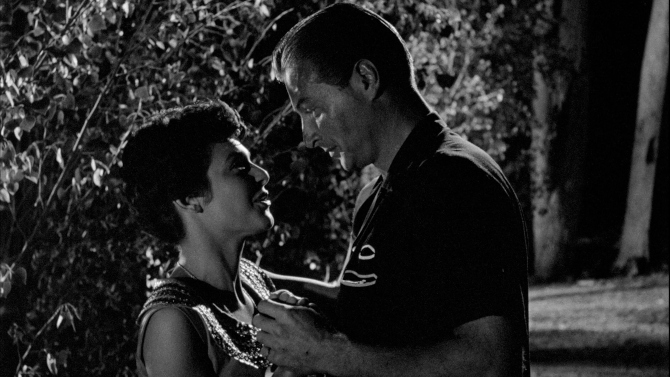
Stocking Stuffer
Wow – what a tagline: “One will die tonight! The girl on the loose, the smart secretary... they’re too teasing...too tempting...too easy a target for a crazed killer!”. 1957's The Girl in Black Stockings, coming from famed producer and sometime director Howard W. Koch, is a B budget film noir that really demonstrates its influence as a precursor to the gialli and slasher films that would follow some fifteen or so years later. Nearly entirely set in one location, welcome to the small town of Kanab, Utah... a population of three thousand that houses within it the relaxing Parry Lodge – a perfect place for those looking to escape their stressful lives. Run by a brother and sister, Edmund Parry (Ron Randell) is a clench jawed cynic (likely stemming from the fact he is a quadriplegic), often spouting cheerful lines like, “I’d like to get so drunk I’d look in a mirror and spit in my own face”, while Julia (Marie Windsor – The Killing) is everything to him but wife (but that doesn’t mean she’s not jealous when a woman shows him any attention).
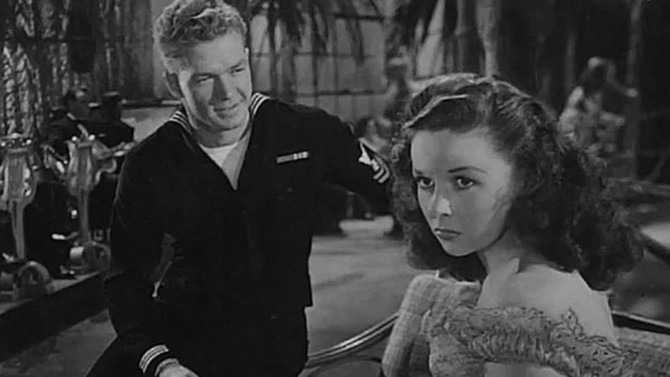
Death, Deadlines, and Dawn
Sometimes the heat makes us go a little crazy. Likewise, alcohol can have a similar effect... pair them both together, and all bets are off. Transporting us into the dog days of summer in the City That Never Sleeps, Deadline at Dawn (1946), directed by Harold Clurman (the only feature made by the legendary stage director), is full of drunken danger. With perspiration dripping from every pore, baby-face Navy sailor Alex Winkler (Bill Williams) finds himself waking from a nasty bender at a New York City newsstand. . . if that wasn’t bad enough, he discovers a wad of cash that isn’t his and a faint memory of stealing it from loose femme Edna Bartelli (Lola Lane), a slinky blackmailer who’s definitely on the fatale side.
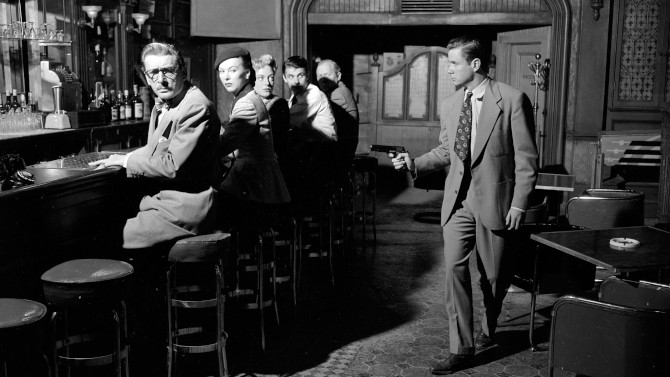
Dial 1119 For Murder
The heat can make us all go a little bit crazy sometimes... but what happens when the thermometer is ready to pop and you’ve just escaped from the insane asylum? A confined, claustrophobic, sweltering film noir, 1950's Dial 1119, directed by Gerald Mayer (son of Louis B. Mayer), makes you feel the heat. Young, baby faced Gunther Wyckoff (Marshall Thompson) isn’t what he looks, he is, for lack of a better term, bonkers. Having already killed numerous people, it was police psychologist Dr. John Faron (Sam Levene), who was able to save his life from the electric chair.
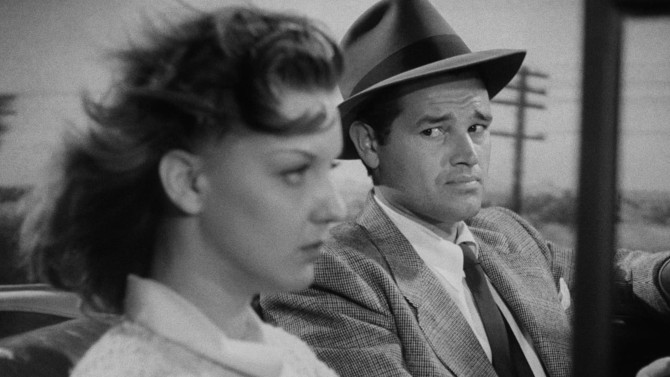
Just Deserts
You know you’ve got a budgetary problem when you find yourself on Poverty Row. For those of you who do not know, this was the slang term used for a group of low budget Hollywood B movie studios that existed in the City of Angels from the 20s to 50s. Transcending these financial constraints to make a quality film noir, director Edgar G. Ulmer used all the proverbial tricks in the book to develop Detour (1945). Told in a most unique way, a quasi-soliloquy narration transitions to nightmarish flashbacks as Al Roberts (Tom Neal) recounts his fatefully nihilistic tale (you might never see a more downtrodden visage). A cynical man, even before his girlfriend (closing in on fiancée), Sue Harvey (Claudia Drake), decides to leave him to make her own breaks in Hollywood, he is the prototypical down on his luck protagonist. It’s not like he doesn’t have a skill – a piano virtuoso, he can only find a job tinkling the ivories at a crummy nightclub in fog strewn NYC (fog was a useful tool for low budget productions that didn’t have the money for sets).
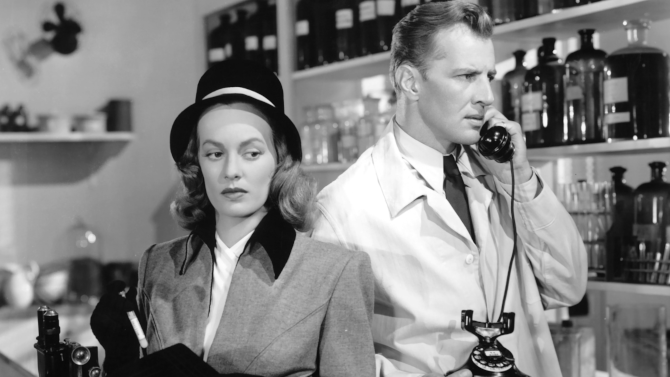
Stranger Danger
A young woman’s cold dead body lays on a bed – an apparent suicide (there is a note); a man taking the wedding ring off her hand, then stealing money from her purse; he hops out of the window with his luggage, tweaking his leg in the process... this is the dark and intoxicating opening to 1945's Danger Signal, directed by Robert Florey. Based upon a novel of the same name by Phyllis Bottome, the above mentioned man is Ronnie Mason (Zachary Scott), he’s as smooth as silk, as silken as velvet, as velvety as velour... in other words, he’s a slick chameleon bluebeard that women should be wary of (but never are).
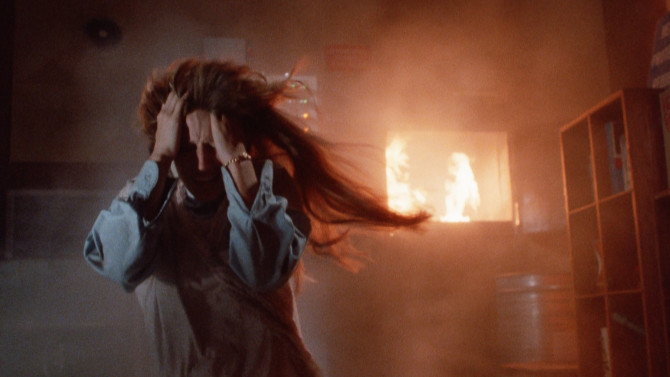
Missed the Bloody Cut: 2021 (Part 4)
The fourth and final Missed the Bloody Cut horror selection of this year, here are some more horror movies that did not meet my strict criteria (a rating of 7.0 or higher). . . but are still entertaining films (horror fanatics may enjoy) that do not deserve to be ignored like the old haunted murder mansion on the block – and that they are definitely worth a watch (just maybe not several re-watches).
